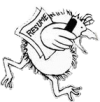Blog
As published in The Australian - 6 September 2008
To prepare effectively for a public sector interview there are some key elements which must be clearly understood: public sector interviews are formal in structure and process. There is always an interview panel of two, three or more members (the most common is three). There may also be a scribe to take notes. The panel members have been trained in interview techniques and will assess your verbal and non-verbal responses. The questions are based almost solely on the selection criteria, and the purpose of the interview is to substantiate your responses to the selection criteria in your application. The style of questions can vary from behavioural, scenario or be straightforward, such as, how would you deal with a particular situation. The interview may include a written exercise/presentation or a role play, depending on the position. The panel may give you the questions 15 minutes prior to the interview, but, you are usually informed if this is the case. Three days' notice is the norm (not a lot of time to prepare). Here are four clear steps to prepare:- Adjust your "mindset".
- Do some research.
- Match your skills and attributes to the job.
- Practise your interview responses.
Mindset
John F. Kennedy once said, "Don't ask what your country can do for you, ask what you can do for your country". This thinking is the starting point for your preparation. Step into the interviewers' shoes. Most candidates see the interview process from "what's in it for me". It may mean a promotion, more money, community contribution,job security or myriad other personal reasons. These are all valid. However, as an employer I am focused on what is in it for my organisation. Now imagine you are on the interview panel. What skills, attributes and experience would the applicant need to demonstrate for you to say yes? Using your changed perspective, re-read your application and the information package.Research
Understand the role clearly, the work of the organisation and absorb some of the culture and language. The website is a great place to start. Most public sector organisations have quite informative websites - even ASIa provides lots of information. Focus on their core business, priorities, products or services, legislative framework if applicable and their terminology. Read the current annual report or newsletter if available, and recent media releases. These will provide you with an insight into current focus and issues. Pick the most relevant sections to the role. Also, talk to people who know the organisation and look for relevant newspaper and magazine articles (time permitting). It is always interesting to learn new information. Match your sldlls and attributes to the job: This is where the hard work really begins. Put aside a couple of hours for this exercise. Start by identifying the essential and desirable requirements for the position - use the selection criteria and duty statement as the basis for the exercise. The requirements can include communication skills, strategic advice and policy development. And the list goes on. Match each ofthese requirements to your skills, experience and personal attributes and give some examples to demonstrate how you meet these requirements. This process will focus your thinking, clarify the role and provide you with the examples from experience that you will need to clearly demonstrate your suitability for the position. Remember the interview is not just about results, but the process used to achieve results. Practise your interview responses: Create some questions you are likely to be asked at the interview, or find some on the net. There are plenty of examples. Make sure to include questions, such as, what skills and experience do you bring to this position and what interests you in this job? Have a partner or friend ask you the questions and work through your answers. Use some ofthe organisation's language in your responses - sound like one of them. Take note of the points you want to include in your answers and your examples from experience - your proof. Evaluate them from the interviewer's perspective. Do not memorise your ,and watch your body language. Your body language often says as much about vour level of confidence as the words you use. On the day of the interview make that mind-shift, re-read your application yet again, take three deep breaths, smile, relax and enjoy the experience.© 2024 Impressive Interviews. All Rights Reserved.

